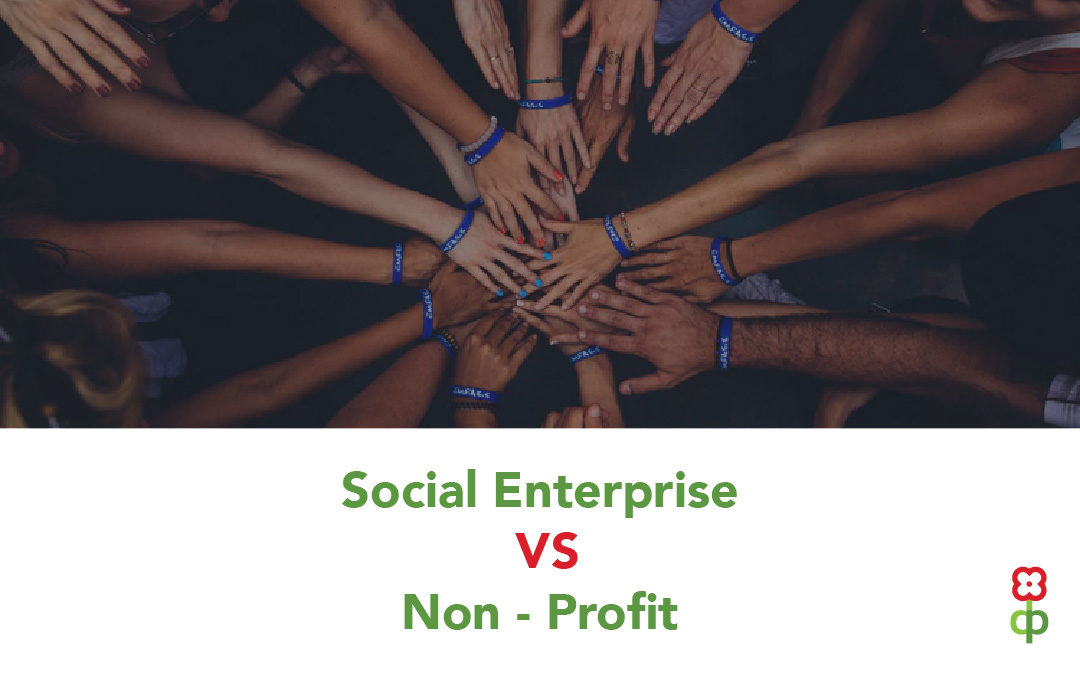In the past few years, the term “social” has been conquering organizations with its variety of activities. Many organizations in Palestine have introduced new practices to their strategies and maybe change their business models, these changes mainly revolve around social responsibility, ethics, charity, community development, etc. In the Palestinian context, these organizations are legally classified as either Non-profit Companies or Charitable Associations and Civil Society Organizations. Understanding the difference between the two models can be challenging, especially when both models work for similar objectives and causes.
As a result of the evolution of social economy, a new model of social organizations evolved which is the Social Enterprise (SE). Social Enterprise is not a legal term and therefore it has no legal definition unlike the Non-profit Companies and Civil Society Organizations. In Palestine SE model is still recent and the attempts to define it within the Palestinian context are still diffident.
So what exactly are they? And how do they differ?
Let’s start with some definitions, shall we?
Social Enterprise
A Social Enterprise (SE) is a business with social objectives. Social enterprises don’t necessarily need to have profit maximization motives, but they are able to legally make profit, unlike non-profit organizations. A social enterprise attempts, through its business, to address a social problem or a challenge.. Social enterprises mainly take the form of either a non-profit or for-profit, and are sometimes registered as a social business or charity.
Non-Profit Companies and Civil Society Organizations
Non-Profit Companies are defined according to the Law by Decree No (6) for the year 2008 amending the applicable Companies Law and Ministerial Order No (3) for the year of 2010 regarding the regulation of Non-Profit Companies as:
Any company that is registered as a Private limited company and doesn’t aim at profit-making and follows in its registration the procedures came under the law.
Civil Society Organizations are is defined according to Law No. (1) for the Year 2000 On Charitable Associations and Civil Society Organizations as:
Any charitable Association or Civil Society Organization with an independent judicial character, established upon the agreement of no less than 7 persons to achieve legitimate objectives of public concern, without aiming at financial profit-making or other personal benefit for the members.
Legal Framework
Social Enterprise:
A Social Enterprise (SE) is not recognized under the Palestinian legal system. Hence, there is no legal registration status for social enterprises in Palestine. Consequently social enterprises often register as a for-profit business or as a non-profit in Palestine.
Non-Profit Companies and Civil Society Organizations
Non-Profit Companies are organized under the following legislations:
– Companies Law No (12) for the year of 1964.
– Law by Decree No (6) for the year of 2008 regarding amending companies law.
– The Ministerial Order regarding Non-Profit Companies Regulation No (3) for the year of 2010.
– The Ministerial Order on amending the Non-Profit Companies Regulation No (3) for the year of 2010.
– The Ministerial Order No (7) for the year of 2015 regarding Non-Profit Companies.
Civil Society Organizations are organized under the following legislations:
– Law No. (1) for the Year of 2000 on Charitable Associations and Civil Society Organizations.
– Law by decree No (6) for the Year of 2011 regarding amending Law No. (1) for the Year of 2000 on Charitable Associations and Civil Society Organizations.
Funding
Social Enterprises
Like any business, a social enterprise is able to generate profit to help sustain its operations. The profit made by a social enterprise is later re-invested in the business to amplify the social impact it’s making. Social enterprises are also able to accept grants as well as funds from investors.
Non-Profits Companies have sources from which they can acquire funds according to Article 11 of The Ministerial Order regarding Non-Profit Companies Regulation No (3) for the year of 2010, which are the following:
1- Non-profits have the right to establish activities and income-generating projects provided that its revenues are used to achieve their endeavours.
2- Non-profits are permitted to receive donations, aid, or financing from foreign resources as long as these donations are not pending on a condition.
3- Non-profit companies have the right to possess movable and immovable money.
Why Social Enterprises?
Both non-profits and social enterprises share similar goals – serving community needs, and creating social impact. Non-profits are constrained in terms of their practices (activities, funding, etc.). On the other hand, Social enterprises have more freedom. For instance, unlike non-profits, social enterprises are allowed to generate revenues. Also eligible for seeking grants the same as non-profits.
Example
SunBox
A social enterprise that provides a sufficient source of energy by installing off-grid and on-grid solar systems to households and organizations in Gaza Strip. Majd Mashharawi, Founder and CEO of Sunbox, stated that more than 20% of their profits are allocated to install solar systems to families in rural areas of Gaza, where only 3 hours of electricity per day is provided
Legal Status
SunBox is registered as a for-profit company under the Ministry of National Economy. As stated before, The Palestinian National Authority hasn’t yet introduced a policy regarding the registration of social enterprises, that’s why social entrepreneurs go to register as non-profit or for-profit companies.
Funding
SunBox has various sources of funds, this includes annual profits, crowdfunding campaigns, personal funds, direct donations, and grants from international NGOs.
Why did Majd go into Social Entrepreneurship?
Majd Mashharawi has been fascinated with social entrepreneurship long before starting SunBox. She believes that operating a social enterprise instead of a non-profit or a for-profit not only allows you to build your own entity, but to have your own impact on your community. According to Majd, social enterprises are more sustainable than non-profits due to their ability to generate profit.
We would like to express our sincere gratitude to Mr. Tareq Touqan, Manager Partner at Equity Legal Group, Ramallah/Palestine for his legal review of this article. Thank you Mr. Tareq, you’ve always been a great supporter of us.

